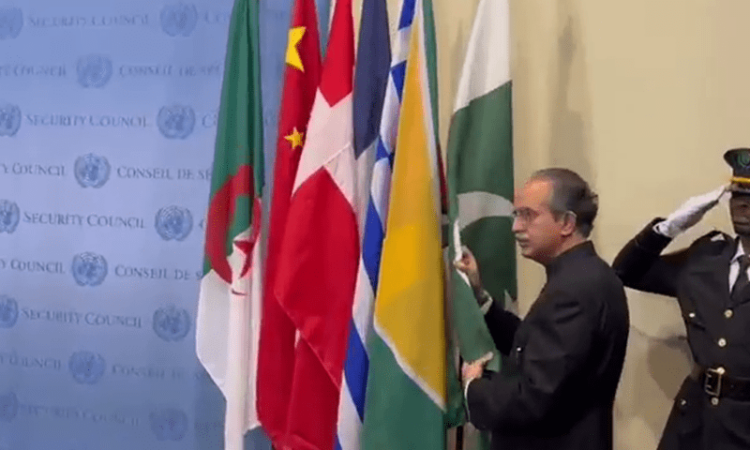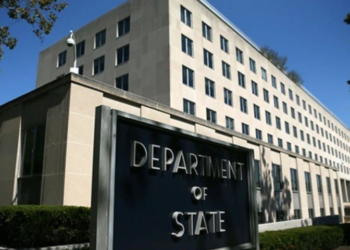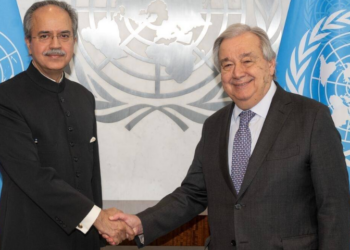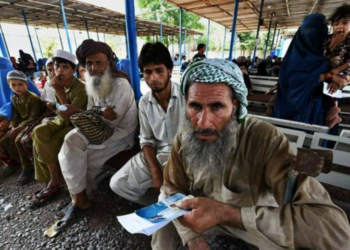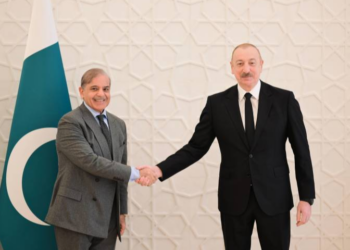New York, January 3, 2025: The Pakistani flag was raised in front of the United Nations Security Council (UNSC) chamber as the country commenced its eighth term (2025-26) as a non-permanent member of the 15-member council, according to a press release by Pakistan’s Permanent Mission to the UN.
Elected in June 2024 to replace Japan, Pakistan now holds one of the two Asia-Pacific seats on the UNSC. It will assume the council’s presidency in July, presenting a significant opportunity to set priorities and encourage dialogue on critical global issues.
During a ceremony at the UN Headquarters, flags of the five new non-permanent members — Pakistan, Denmark, Greece, Panama, and Somalia — were installed, replacing outgoing members Japan, Ecuador, Malta, Mozambique, and Switzerland. Pakistan’s Alternate Permanent Representative, Ambassador Asim Iftikhar Ahmad, represented the country and raised its flag during the ceremony.
In addition to its general duties, Pakistan will hold a seat on the ISIS and Al Qaeda Sanctions Committee, which oversees the listing of terrorist entities and the imposition of sanctions.
The UNSC consists of 15 members: five permanent members — Britain, China, France, Russia, and the United States — and 10 non-permanent members elected by regional blocs, with five rotating annually. As the UN’s most powerful body, the Security Council can make legally binding resolutions, impose sanctions, and authorize the use of force.
Ambassador Ahmad emphasized Pakistan’s commitment to upholding the principles of the UN Charter, including maintaining peace, promoting friendly relations among nations, and supporting self-determination. Speaking at the ceremony, he reiterated Pakistan’s stance as a strong advocate for people under foreign occupation and oppression.
“Cooperative multilateralism, with the UN at its core, remains the best approach for addressing today’s complex global challenges,” said Ahmad. He underscored the importance of addressing the root causes of longstanding and emerging conflicts through dialogue, diplomacy, and confidence-building measures.
Ahmad further noted Pakistan’s resolve to collaborate with fellow members in pursuing just and peaceful resolutions to conflicts. “We will make full use of the tools available — from conflict prevention and peacekeeping to peacebuilding — to ensure lasting peace,” he said.
He concluded by reaffirming Pakistan’s commitment to upholding international law and ensuring the effective implementation of Security Council resolutions. “In assuming this responsibility, we are determined to work toward a more peaceful and secure world, mindful of our duty to millions affected by conflict,” he added.


